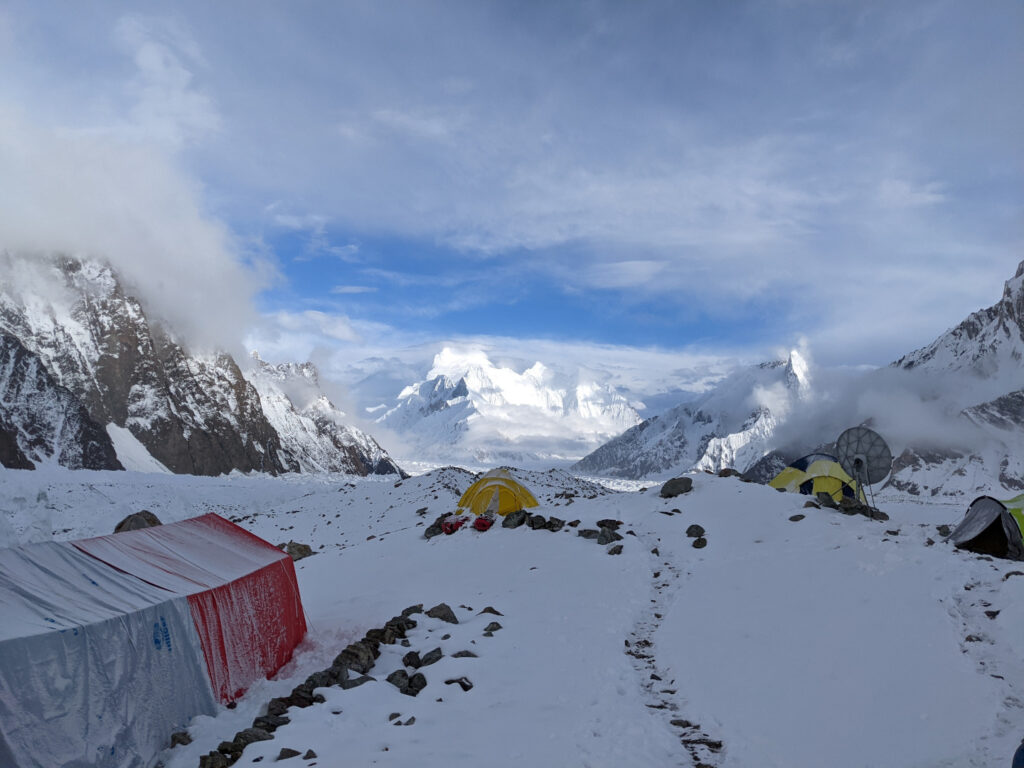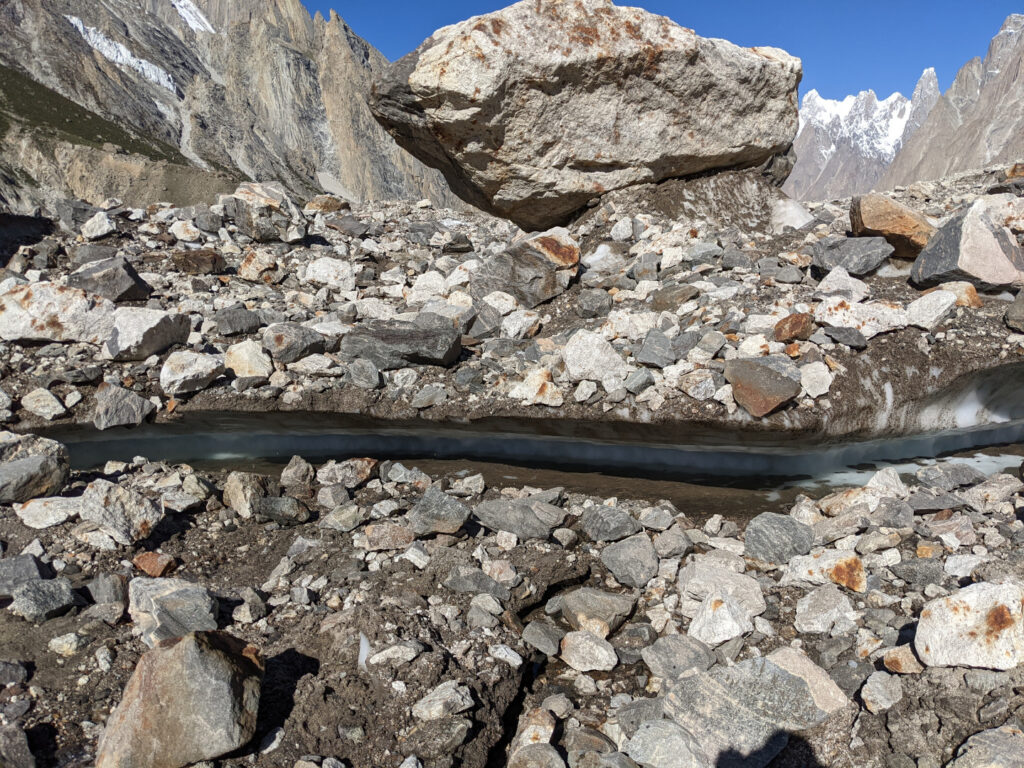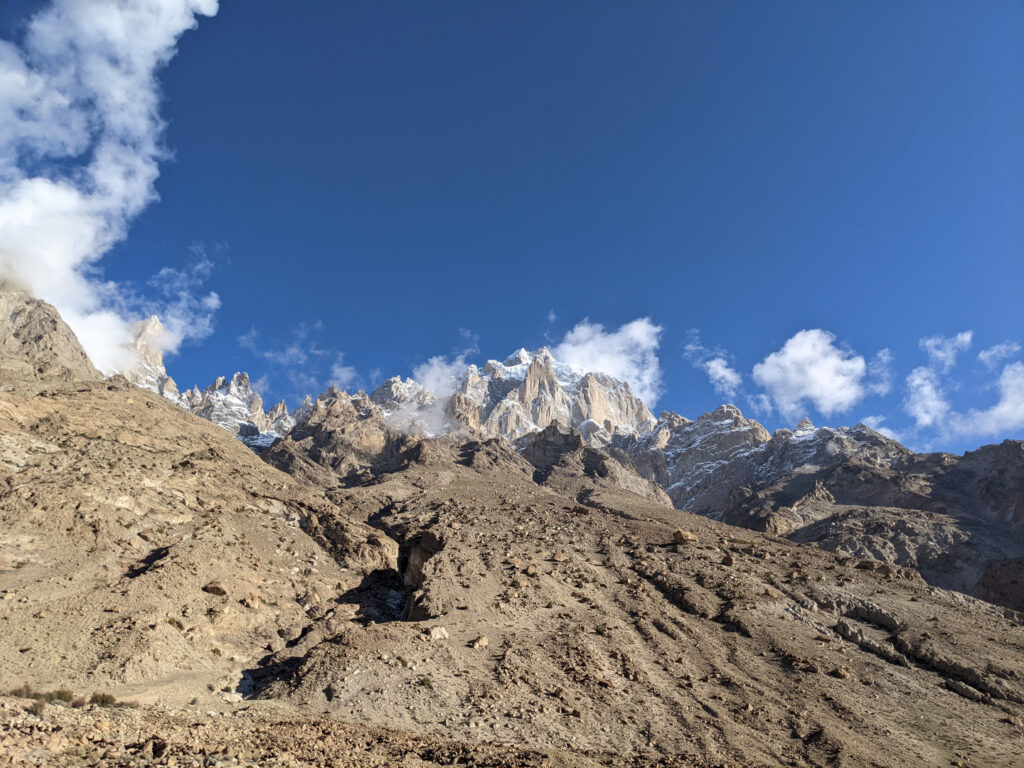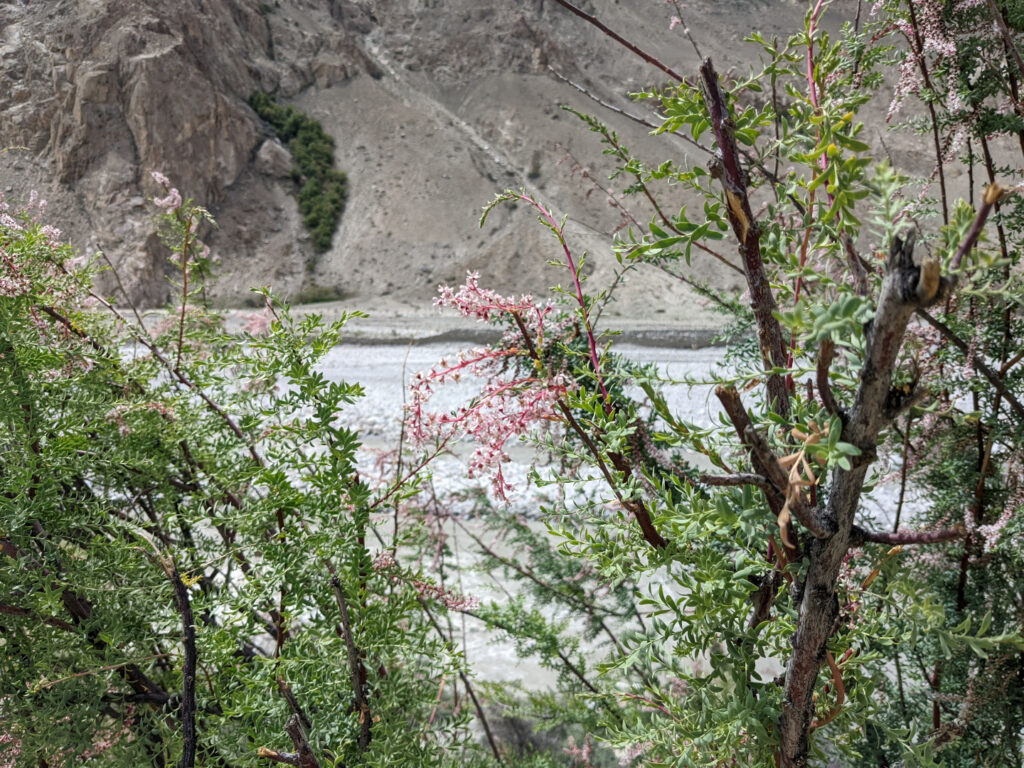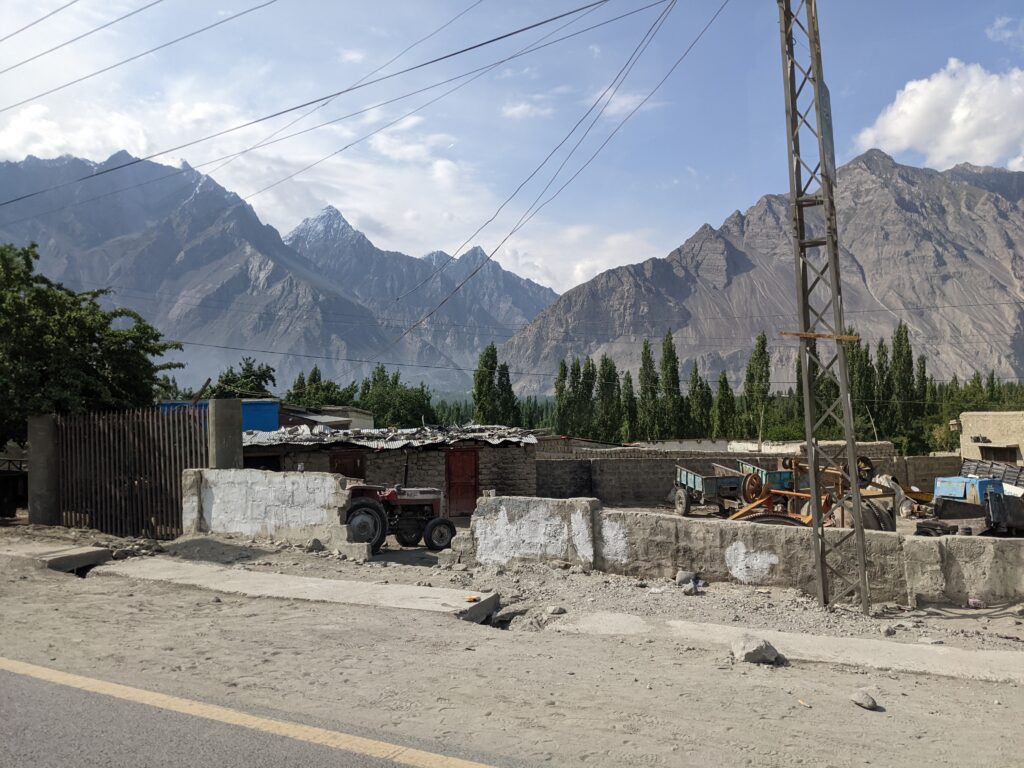After taking a day of rest after the first rotation in base camp, we were heading back for the second rotation on Broad Peak. This time the goal was to sleep in camp 2, and preferably hike above camp 2, maybe even touch camp 3.

We started early in the morning so the glacier rivers would still be frozen and the snow firm. Once the rivers on the glacier thaw, traversing the moraine becomes much more difficult. The rivers’ flow is too strong and the terrain too slippery to cross just anywhere, and finding a safe crossing isn’t easy even with experience. (Hell, a local porter died trying to jump one of the rivers…) Higher up on the mountain having firm snow means much easier progress. Not sliding back a step for every two steps forward is a huge difference in exhaustion.


